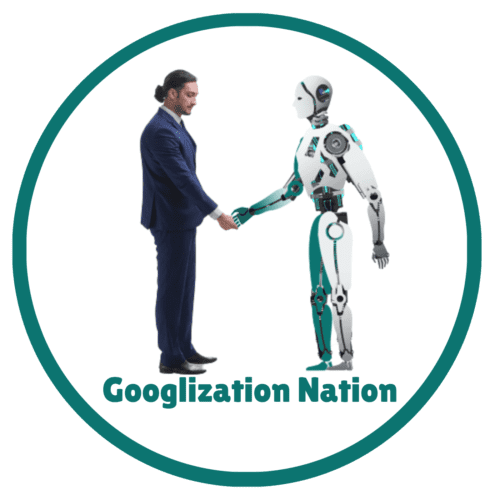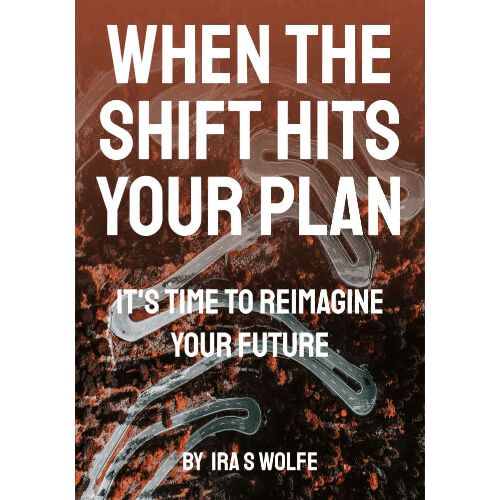What is Virtual Reality and How Can It Change the World?
Plus
Impending Crisis/Perfect Labor Storm
Interview with Dr. Angelina Dayton, Ira S Wolfe, Joyce Gioia
LISTEN, WATCH, SUBSCRIBE
WHAT TO EXPECT
Communication has evolved throughout the generations. From paper mail, telegraphs, telephones, to mobile phones, the exchange of information and experiences has become extremely convenient. Instead of days and weeks of waiting, you only need a few seconds (and even less). The turning point of this evolution of modern communication has been the emergence of the Internet. The internet provided innovative and modern ways of communication, from instant messaging to video calling. With immersive video technology on the horizon, Virtual Reality is once again bound to disrupt the status quo of communication – from politics, economics, medicine, social interaction, to even education.
Today, Dr. Angelina Dayton, Senior Virtual Reality Research Scientist at Virtual World Society, explores the significance of virtual reality and its revolutionary potential to change how we look at the world.
Segment #1: Dr. Angelina Daytom
Dr. Dayton discusses the virtue of virtual learning as if you are “entering another world.” Unlike traditional digital learning, where you look at your computer screen, virtual reality is entirely immersive. You feel like you can move in an alternate environment and interact with objects in a three-dimensional way instead of looking at a flat 2D video projected through a screen. Zoom fatigue has become prevalent because you are not genuinely “connecting” with someone. It lacks the native way of connecting with someone, either from hugging or hand-shaking – there is no conceived perception of realism in being there at that moment.
Segment #2: Ira Wolfe and Joyce Gioia
Ira and Joyce explain different disruptive trends from various research institutions on current labor trends. A growing number of employers are struggling to find the right people to fill the gaps of their companies, while employees are toiling to find new jobs where they feel safe, their interests align, and where they can earn liveable wages.
Quotes
- “The children learn in an entirely different world, a world you can create and move through as if you are in the real world.” [10:32]
- “Screens are dead; wearable technology is where we are all headed into.” [13:00]
- “Remember those experiences as if they are real.” [25:25]
- “Companies are now struggling to fill positions.” [36:25]
Podcast Notes
The Divide Between Virtual and Real Worlds
“The children learn in an entirely different world, a world you can create and move through as if you are in the real world.” [10:32]
Dr. Dayton compares and contrasts the real world and virtual world. You can create different “worlds” virtually where children can explore the icy world or a forest without actually being there. This difference in digital learning becomes apparent when Zoom fatigue comes into the picture. The lack of “actual” interaction between the observer and the object is why more and more people are fatigued and less interested in the Zoom calls as a learning medium. Although it served its purpose splendidly during the COVID19 Pandemic crisis, it is not the conceived “future of learning” for the next generation.
When Iron Man Becomes a Reality
“When employee activism occurs,“ Screens are dead; wearable technology is where we are all headed into.” [13:00]
Dr. Dayton argued educational institutions have tech budgets; they just don’t know how to utilize them efficiently. These allocated budgets are all underutilized by purchasing products in the “dead tech industry,” where gadgets that can’t be sold directly to consumers are instead sold to educational institutions. With Virtual Reality becoming cheaper, lighter, with longer battery life-span, screen-oriented gadgets will slowly fade.
Virtual Experiences with Realism
“Remember those experiences as if they are real.” [25:25]
When you conduct your training in the immersive environment granted by virtual reality, it somehow affects your experience in the real world. Dr. Dayton explained how driving a car “virtually” can help you correct your habits and misconducts and transfer them to the real world because of the guided experience and perception it provides. Behavioral changes are bound to happen because your gut tells you – as it recalls your experiences in the virtual world.
The Future of Networking and Trade Fairs
“Companies are now struggling to fill positions.” [36:25]
Ira introduced the statistics from the labor study conducted by McKinsey & Company, estimating that 28% of workers need to change their occupations by 2025. These were anticipated but the pandemic accelerated things about 5 years. On average, 40% of workers require reskilling of six months or less, and 94% of business leaders reported their expectations that their employees would pick up these new skills. Ziprecruiter estimated that there are currently 15 million job openings. With these numbers in mind, why do people not go back to work? One fear of bringing the infection to their families, making the vaccination movement more critical to fill these gaps in the foreseeable future. Another is the stimulus checks that may discourage some workers from actively looking for a job. To hear Ira’s response to the latter, you’ll want to listen.
WHERE TO WATCH OR LISTEN
The Geeks, Geezers & Googlization TV Show is live every Wednesday at 1 PM ET on Facebook, YouTube, Talk 4 TV, and broadcast on W4CY Radio, part of Talk 4 Radio on the Talk 4 Media Network. The podcast is also available on Talk 4 Podcasting.
Following the broadcast, the replay will be available at the same links for YouTube and Facebook, our podcast website Geeks Geezers Googlization, and on most podcasts including Apple Podcast, iHeart, Spotify, Amazon, Stitcher and more.







